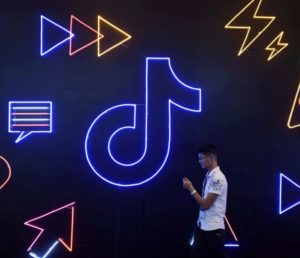Is Tiktok Brain the Real Thing? See how TikTok affects your brain according to the Wall Street Journal.

Tiktok Brain
You must be aware of how social media has influenced your lifestyle and thought patterns. And TikTok, as one of the most popular social media platforms, has a slew of drawbacks.
Those who aren’t aware of its flaws are likely ignorant of how it demands your entire attention and forces you to hold it longer with each brief clip.
Have you ever been bored watching even a minute-long film these days? Think about it.
According to a new study, a new illness known as TikTok Use Disorder has been discovered, and it has been linked to increased stress, anxiety, and depression in people.
Not only in your personal life, but also in your professional life, since your working memory deteriorates.
What Is A Tiktok Brain? TikTok Brain Meaning Explained
The TikTok Brain is now gaining a lot of attention because it explains how TikTok affects the way your brain works and your thinking habits.
According to research, watching TikTok videos is enjoyable because it causes your brain to release dopamine, sometimes known as the “happy hormone.”
And when more dopamine is released, your brain is reinforced to do it even more, which in this situation means it directs you to watch or make more videos.
The prefrontal cortex, a region of the brain that governs cognitive control, is not fully matured in people under the age of 25, therefore they are the ones who are most affected.
As a result, they have no choice but to increase the amount every day.
The TikTok Brain, according to the Wall Street Journal, is real.
According to Wall Street Journal experts, the algorithms by which TikTok delivers your daily doses are to blame for your significant addiction to TikTok.
TikTok gives more of the same when you watch a given style of video and how long it maintains your attention.
And why would anyone want to miss out on their favourite stuff when it’s right in front of them?
As a result, your brain has become conditioned to seek such stuff.
What Are Its Impacts on Kids?
Don’t you think it’s the parents who push their children into the digital world?
Their children aren’t even five years old and already know how to use their iPads or iPhones to play their favourite games. When parents are preoccupied with their work, they distract their children by placing electronic devices in their hands.
Surprisingly, kids already thrive at using technology and social media while not being able to talk effectively.
Children’s brains become resistant to concentrate on one item for a longer period of time after watching second or minute-long videos.
TikTok, on the other hand, has taken the first step toward resolving the issue. It will no longer allow users aged 13 to 15 to receive push alerts after 9 p.m., while urging them to take a break on a regular basis. Is Tiktok Brain the Real Thing? See how TikTok affects your brain according to the Wall Street Journal.
You must be aware of how social media has influenced your lifestyle and thought patterns. And TikTok, as one of the most popular social media platforms, has a slew of drawbacks.
READ RELATED: Zarah Sultana Ethnicity, Husband, Wiki, Biography, Age, Parents, Net Worth & More
Those who aren’t aware of its flaws are likely ignorant of how it demands your entire attention and forces you to hold it longer with each brief clip.
Have you ever been bored watching even a minute-long film these days? Think about it.
According to a new study, a new illness known as TikTok Use Disorder has been discovered, and it has been linked to increased stress, anxiety, and depression in people.
Not only in your personal life, but also in your professional life, since your working memory deteriorates.
What Does It Mean To Have A Tiktok Brain? The Meaning of TikTok Brain is Examined
The TikTok Brain is now gaining a lot of attention because it explains how TikTok affects the way your brain works and your thinking habits.
According to research, watching TikTok videos is enjoyable because it causes your brain to release dopamine, sometimes known as the “happy hormone.”
And when more dopamine is released, your brain is reinforced to do it even more, which in this situation means it directs you to watch or make more videos.
The prefrontal cortex, a region of the brain that governs cognitive control, is not fully matured in people under the age of 25, therefore they are the ones who are most affected.
As a result, they have no choice but to increase the amount every day.
The TikTok Brain, according to the Wall Street Journal, is real.
According to Wall Street Journal experts, the algorithms by which TikTok delivers your daily doses are to blame for your significant addiction to TikTok.
TikTok gives more of the same when you watch a given style of video and how long it maintains your attention.
And why would anyone want to miss out on their favourite stuff when it’s right in front of them?
As a result, your brain has become conditioned to seek such stuff.
What Effects Does It Have on Children?
Don’t you think it’s the parents who push their children into the digital world?
Their children aren’t even five years old and already know how to use their iPads or iPhones to play their favourite games. When parents are preoccupied with their work, they distract their children by placing electronic devices in their hands.
Surprisingly, kids already thrive at using technology and social media while not being able to talk effectively.
Children’s brains become resistant to concentrate on one item for a longer period of time after watching second or minute-long videos.
TikTok, on the other hand, has taken the first step toward resolving the issue. It will no longer allow users aged 13 to 15 to receive push alerts after 9 p.m., while urging them to take a break on a regular basis.






